From Living in a Dumpster to a $12 Million Glamping Business
"It's like finding money buried on your land." Jupe gives customers a high-tech dwelling and takes 30% of the revenue from bookings. Here's how they do it.

The world wants us to be vanilla. To put us into a box. And that's why when I come across original thinkers and characters like the founders of Jupe, I get hypnotized by their quirkiness.
Today's interview is with Hampton member Antonio Gonzalez and his partner Jeff Wilson, the founders of Jupe.
Their product is fascinating. They're high-tech tents that don't feel like tents (and don't call them a tent...they don't like that!). The company gives Jupes to customers with land for free and Jupe takes a 30% cut of rental revenue.
Plus, before founding Jupe, Wilson lived in a dumpster to test different ideas (seriously).
Jupe is on track to do $12 million in sales this year and has raised $9.5 million from people like Garry Tan and Y-Combinator.
Here's their story...
*****
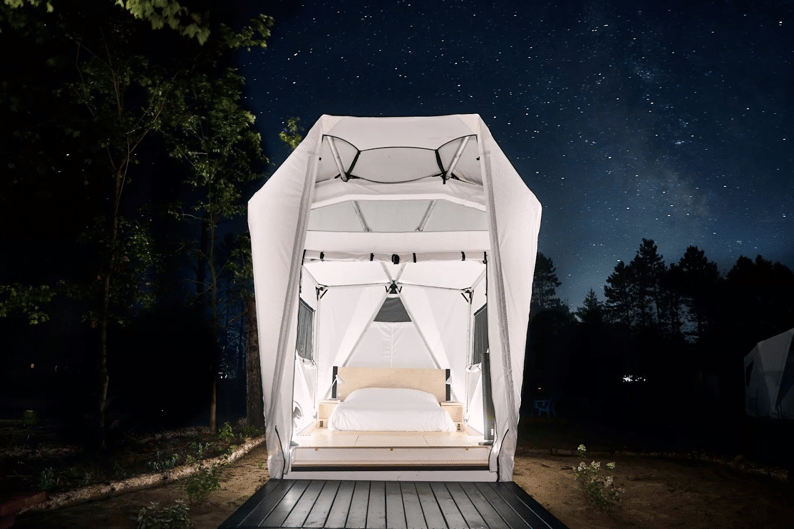
Who are you, and what business did you start?
My name is Jeff Wilson, and along with my co-founder, Antonio (a Hampton member), we run Jupe. We make products that allow landowners to pop-up a nature hospitality site in a day, instantly activating and monetizing an underutilized asset.
It's essentially like finding money buried on your land.
Our main product is a bedroom that can drag and drop anywhere in nature — ready to rent in under two hours. We either sell the units or rev-share them with little to no capex required on the part of the landowner. We're on track to do $12 million in revenue this year. Our longer goal is to use our technology to enable the build of a pop-up, off-grid living experience anywhere on the planet, complete with cafés, internet via Starlink, restaurants, and even saunas.
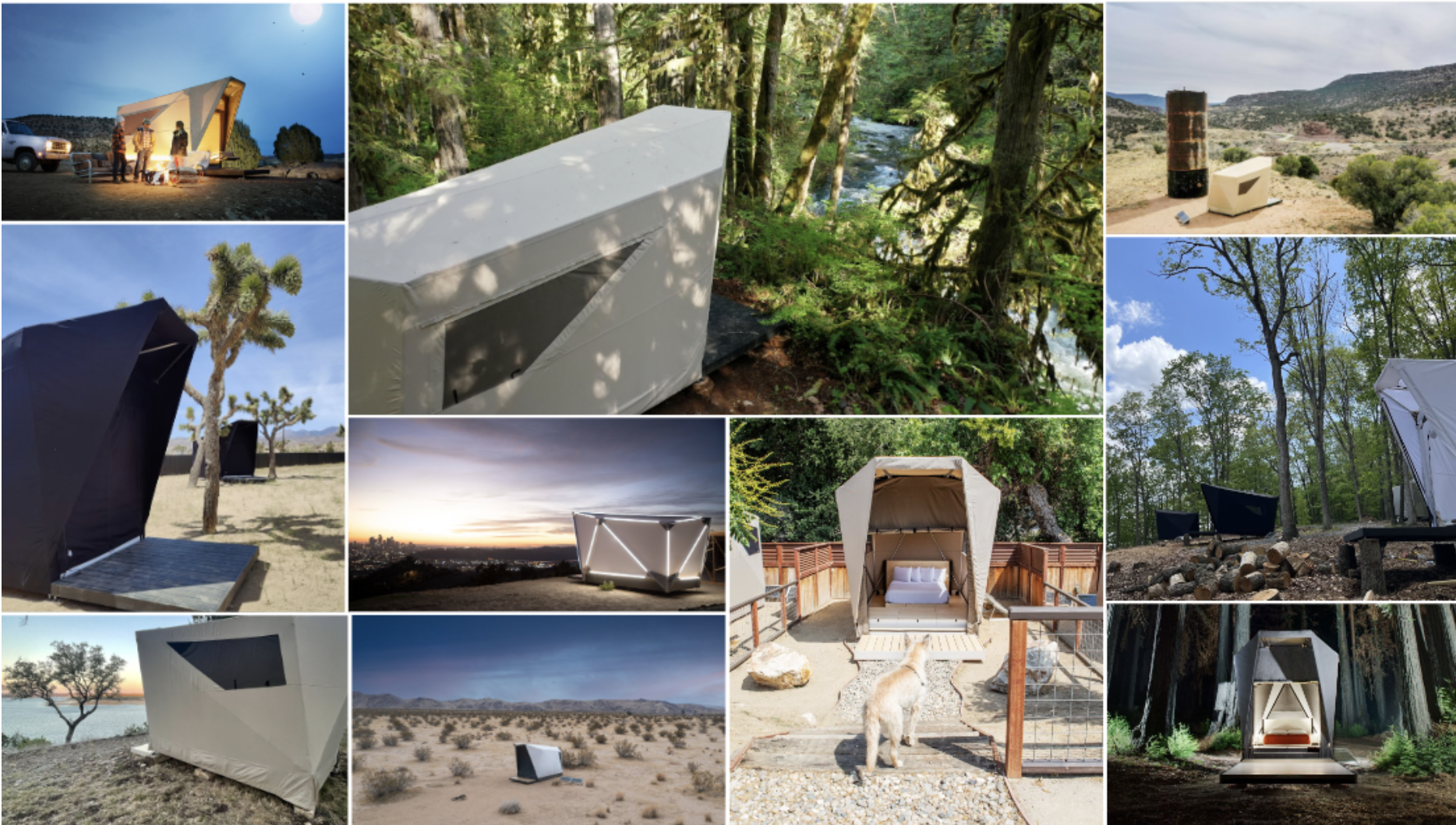
What's your backstory and how did you come up with the idea?
This all started when I decided to live a year in a dumpster as a sort of tiny living experiment.
Over the course of the year in the dumpster, I learned to design tiny spaces and saw the opportunity for micro-units, also known as ADUs (accessory dwelling units). I raised some money and launched Kasita, a tiny smart home that was stackable and, conceptually, movable.
Ultimately, Kasita failed. I was left with $100,000 in credit card debt and became severely down on myself.I decided the best thing to do was to move to a small desert town in west Texas called Marfa — specifically into a non-air conditioned trailer (with a heart on it no less) and resolved to live my days out just working a bar out there, as a failure.
But one day I saw a photo of EV automaker Rivian's Skateboard Chassis and thought - hmm - we could do that for housing. During my Kasita days, I did meet a guy named Antonio during the process and we later went on to found Jupe. Jupe is essentially a flat-packed bedroom that can be dragged and dropped into nature and popped up and ready to rent.
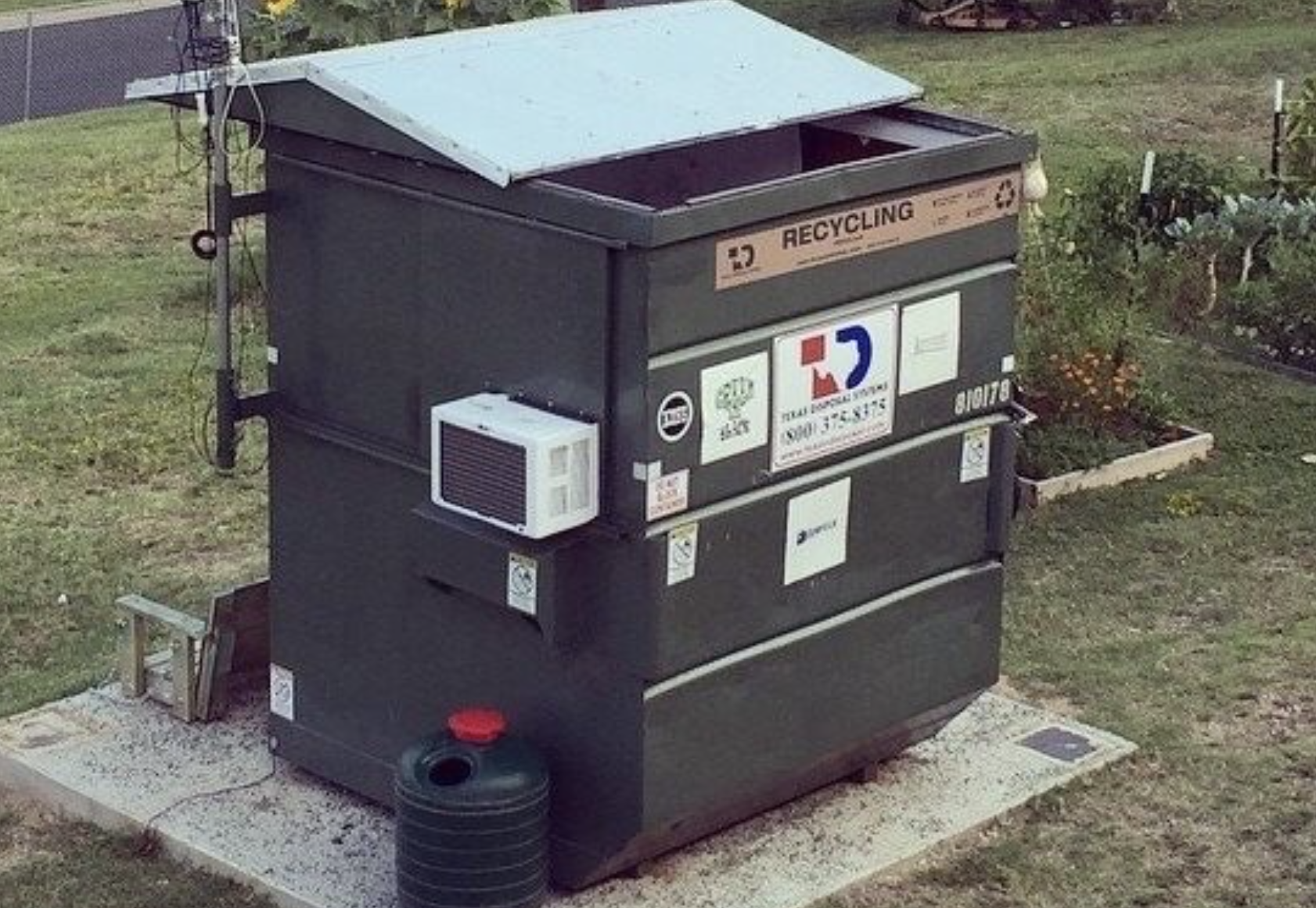
Take us through the process of building the first version of your product.
I knew from my days at Kasita that it was extremely important to get a hardware product out into the hands of customers (even if it didn't meet code/zoning regs) so I told our first engineer that we would need to go from some designs on paper to someone actually sleeping in the unit in less than 60 days.
The engineer didn't seem to have much of a problem with this, because Elon had instructed him to do the same with the first star hopper rocket in south Texas except Elon had only given him five weeks :-)
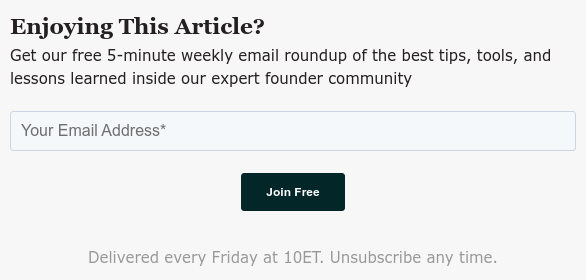
The thing was sorta a P.O.S. (as prototypes often are) but beautiful at the same time. We did manage to hit that deadline and even had the founder of Soylent stay in the prototype Jupe the very first night. The guy was used to experimenting on himself and dog food eating so he was perfect.
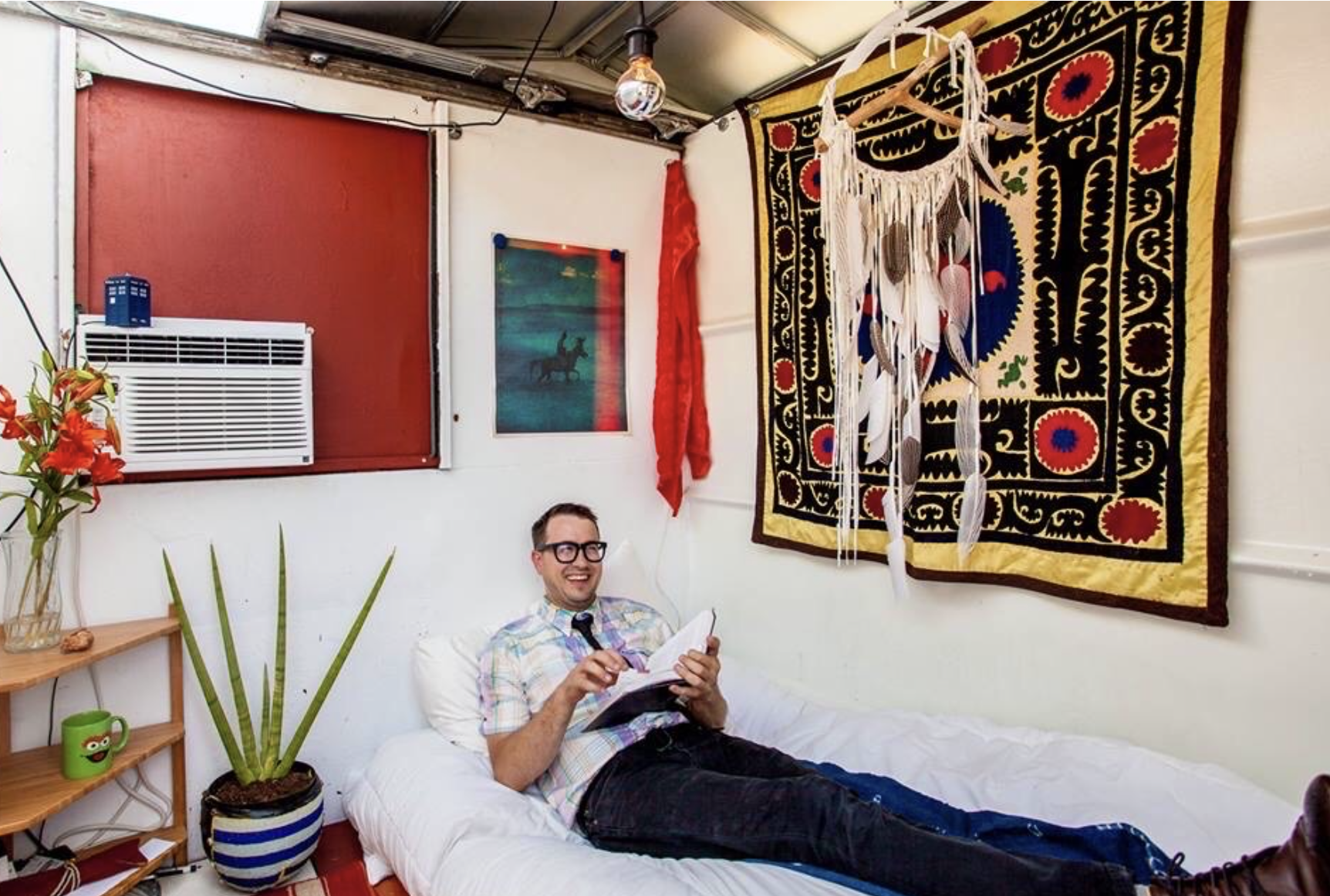
Describe the process of launching the business.
In the beginning, we had a lot of trouble figuring out what product market fit would be. We initially started with concerts, but given that the company's first pitches to investors were in March 20 20 the pandemic pretty much shut that go-to-market down.
We then hard pivoted into Covid emergency shelters for hospitals, but it turned out that the hospitals didn't actually overflow, and even worse, there were no budgets at the hospitals to purchase or rent additional housing for emergency workers.
We eventually stumbled in to the $5 billion market of outdoor hospitality and discovered that it was growing about 17% with no major players in the industry OD more than even in 5% of that business, so this is where we chose to spend our time and have found that there are some real legs and real growth opportunities in this market. In the summer of 2021, we were admitted and funded by Y Combinator and this really upped our game, allowed us to raise money from some of the best investors in Silicon Valley, and attract the talent to build this rocket ship into a real thing and get it in the orbit.
Since launch, what has worked to attract and retain customers?
The number one mantra that we have is to ship product and talk to customers. We also have found that continuing to pound on our bigger mission of solving problems around construction, off grid, living, sustainability, and general housing needs have helped us to stay motivated as a team and attract top people that want to work on these problems and not just another SaaS product or App.
Our marketing spend has been almost 0, and myself and my co-founder. Antonio are the key salespeople we have found that telling our bigger story and the story of our founders has generated interest and bars that have allowed us to acquire customers at a very low cost. As we develop further products, that ship faster and in tighter packages, we intend to move in to some new markets.
How are you doing today and what does the future look like?
We expect to do around $12M in revenue this year (about 400 units deployed) along with several very large Jupe's nature resorts (50+ Jupes). A growth strategy is to continue to acquire the best pieces of land and partner with landowners and ideal locations, and also to create a few new products that will round out our early go to market strategy as a denature hospitality provider of product.
Our longer aim is to create what we call "universal autonomous housing" which is a very long word for popping up a village, anywhere on the face of the planet, and then moving that village very efficiently in a fleet-style fashion. We are looking to capture the future of humanity, and how folks want to live work, and play given movements towards remote work and climate change.
Did you ever have an "oh shit" moment where you thought it wouldn't work?
The name of the game in hard tech start-ups is survival.
Even Elon took over 15 years to really find his stride at both Tesla and SpaceX. And these are now two of the largest most innovative, most impactful companies on the planet.
We know that this is a long and a very hard game to play so we've had to make hard decisions along the way.
For example, in February 2021 the company had two weeks of cash and was considering shutting down, paying back deposits to customers, and paying severance to the employees that would be laid off. I had to make the hard decision to lay off the entire team besides myself, my co-founder, and one engineer and almost miraculously manage to find the cash from some angel investors, and then close more business than we had in the history of the company. And just those two weeks later we got into Y Combinator and were able to really get the fly wheel spinning at the company.
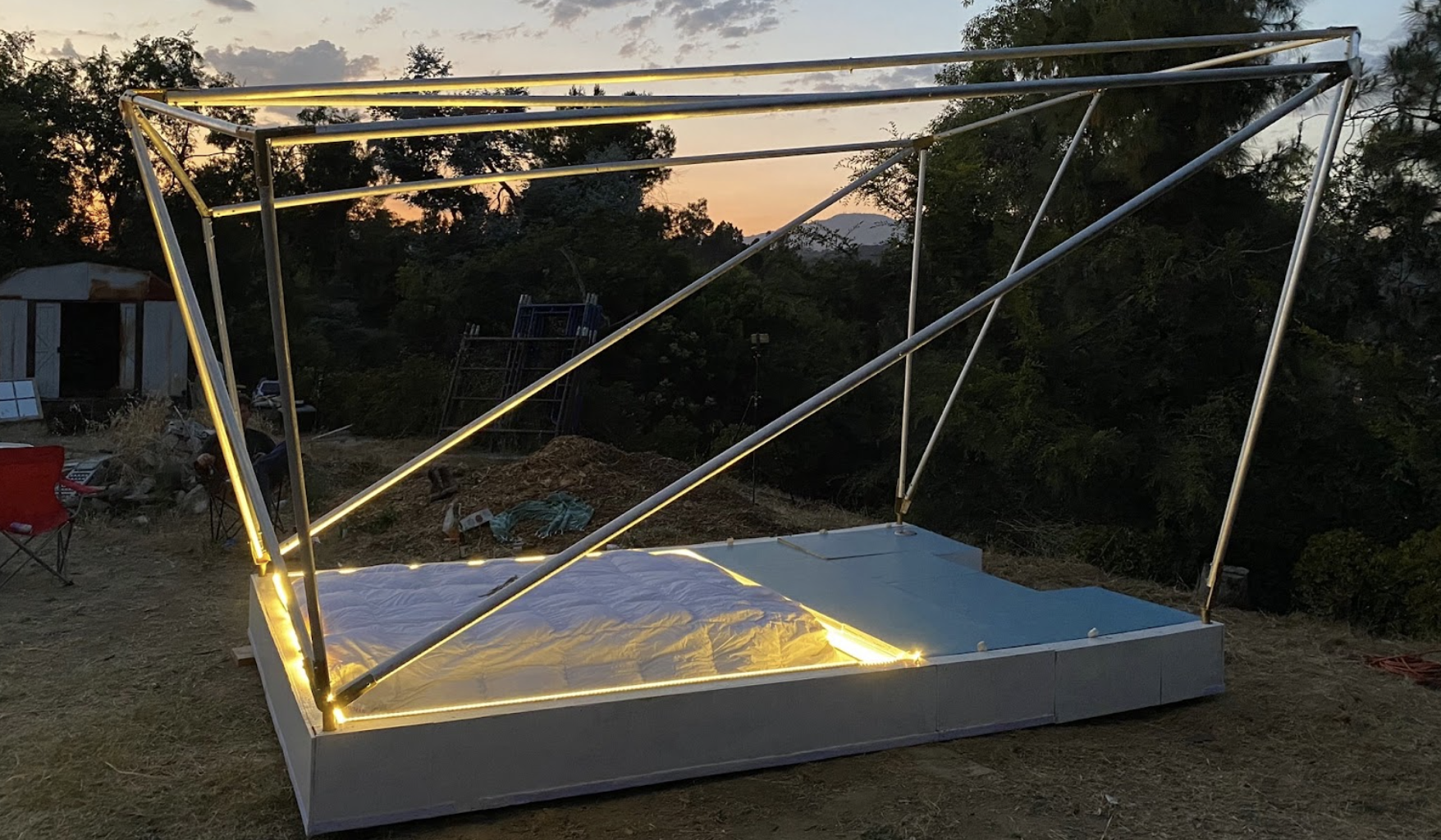
Through starting the business, have you learned anything particularly helpful or advantageous?
I think the biggest thing that we've learned is leaning into survival instinct, which sometimes means fight, and sometimes means flight. Keeping a very close eye on burn, cash in bank, and whether we are default alive, or default dead (great peace by Y Combinator, founder of Paul Graham).
What platform/tools do you use for your business?
We're actually quite obsessive on our platforms. Here's a notion Page link to all 51 if you're interested. My personal favorites are Airtable for DB management and Notion for overall org and notes management (now with an epic AI integration).
What have been the most influential books, podcasts, or other resources?
- Book: The Creative Act: A Way of Being by Rick Rubin. By far the best extension of your creativity as a founder, I've found this work incredible. It's so dense that I have read it five times now and still finding new nuggets of wisdom.
- News Source: The Information - best updates and insider stories on everything happening in the startup world.
- Podcast (after MFM of course): Lex Fridman Podcast. Super-nerd and robot boy Lex takes you on a long-form journey from the outer reaches of the cosmos to the minute bits of the self and back in a most humbling fashion. He's got great rapport and really burrows into the inner workings with everyone from Elon (interviewed three times) to Rogan to Grimes (explaining love here).
Advice for other entrepreneurs who want to get started or are just starting out?
Go for it and get started! You never know the right timing for an idea to really take off but if you don't start now, you can't go back to win the time might've been right. Launch early, launch often, and then listen to users and improve the product. It's better to go down in flames than to softly go out in a whimper. If you fail, don't go get a 'normal' job - go at it again.
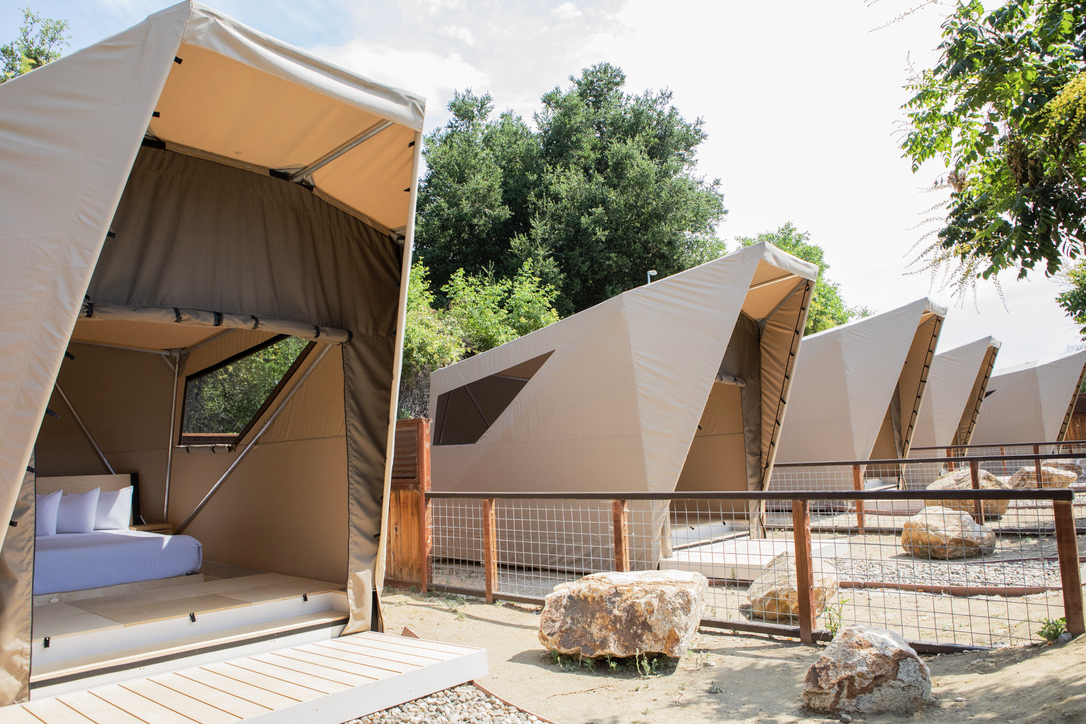
Are you looking to hire for certain positions right now?
Jupe is always looking to hire folks into the mission and looking to get people deeper into nature and ultimately solve major housing issues. Have a look at our manifesto and vision page and reach out if anything looks interesting or if you have ideas that you think you should potentially explore.
Where can we go to learn more?
- If you're interested in qualifying your land or buying a Jupe, then visit our partner page.
- On the web at jupe.com
- Instagram @jupeinc
- On Twitter @jupeinc
- Founders on Twitter @profdumpster and @antoniozalez
- Video with Garry Tan, CEO of Y Combinator and lead investor at Jupe
Personally, I find being the CEO of a startup to be downright exhilarating. But, as I'm sure you well know, it can also be a bit lonely and stressful at times, too.
Because, let's be honest, if you're the kind of person with the guts to actually launch and run a startup, then you can bet everyone will always be asking you a thousand questions, expecting you to have all the right answers -- all the time.
And that's okay! Navigating this kind of pressure is the job.
But what about all the difficult questions that you have as you reach each new level of growth and success? For tax questions, you have an accountant. For legal, your attorney. And for tech. your dev team.
This is where Hampton comes in.
Hampton's a private and highly vetted network for high-growth founders and CEOs.





